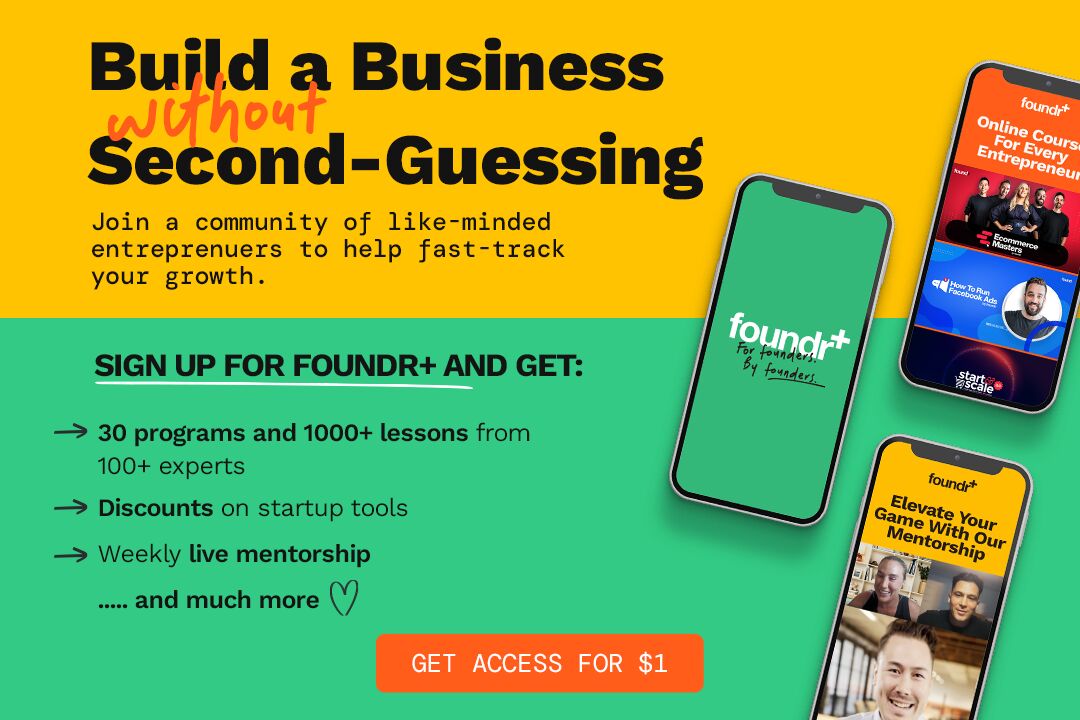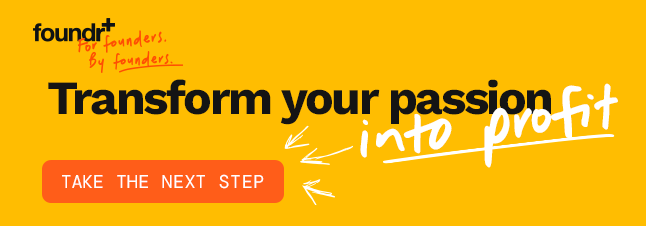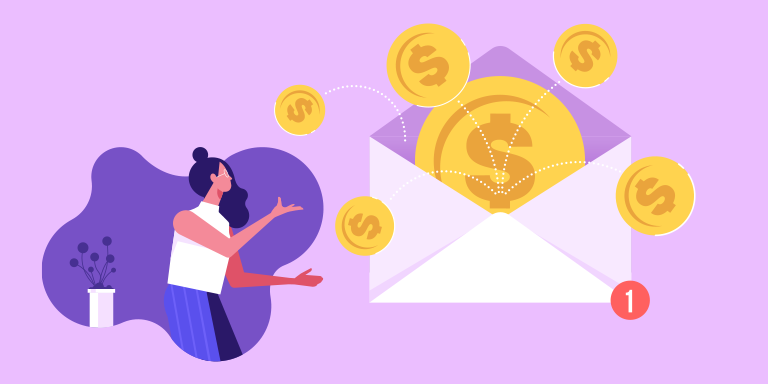You’ve probably heard the saying, “it takes money to make money.” While there’s some truth behind that phrase, it’s not a golden standard. There are plenty of ways you can launch and grow a successful startup business without spending a penny.
Is it easy? No, not by any means. If you have money sitting around, by all means, please invest it in your business to get it off the ground and to accelerate growth.
However, we realize that’s not always a possibility—and that’s OK. Some businesses don’t require any capital to get started, making them low-risk, high-reward ventures. Those are the kind of businesses we’re going to focus on in this article.
Short On Time? Here Are the Best Businesses to Start with Little Money
- Content Creator
- Podcasting
- Freelancing & Consulting
- Blogging
- Teaching/Instructing/Tutoring
- Coaching
- Virtual Assistant
- Event Planning
- Online Community Management
Below, we’ll walk you through the best businesses you can start with no money. While nothing is entirely free in this world, these business ideas come pretty dang close.
But first—is starting a business with no money a good idea?
Table of Contents
Should You Start a Business with No Money?
How Much Money Do You Need to Start a Business?
Best Businesses to Start with No Money
Tips for Starting a Business with No Money
FAQs About Starting a Business with No Money
Should You Start a Business with No Money?
You’ve probably seen other startups score massive venture capitalist (VC) funding or substantial business loans. Sure, you can find equity financing or a lender to fund your business, but that’s not always the best choice.
There are advantages and drawbacks to starting a business with no money. Here’s what to consider:
Pros of Starting a Business With No Money
- You’ll have no financial obligations and total control over your business—you won’t be accountable to lenders, shareholders, family members, or friends.
- There’s little risk involved. If the business succeeds, there’s a huge upside. However, if the company goes under, you’ll lose little investment except for time.
- You can achieve your dreams regardless of your financial situation. Go from startup to C-suite—there’s always a chance.
Cons of Starting a Business With No Money
- Growth can be slow. A bit of capital can help jumpstart your business and accelerate progress.
- You’ll miss out on opportunities. Your website might be simple, and you may not have capital to build up your inventory or supplies. Marketing tactics will be limited, and you’ll have to be strategic with every dollar you spend.
- You’ll probably be operating alone. With capital, you can hire employees and freelancers to help. With an empty wallet, you’ll likely fly solo (at least until you start earning some cash).
Don’t Skip: The 15 Best Businesses to Start
How Much Money Do You Need to Start a Business?
Technically, you don’t need any money to start a business. You could walk across the street, cut your neighbor’s grass, collect your payment, and you’d have started a lawn care business without spending a dollar.
However, it’s not that simple.
There are overhead prices you’ll need to consider:
- Equipment: You’ll likely need at least a computer to run your business. Depending on the services and products you offer, you may need additional equipment and software.
- Utilities: Even if you’re just using a computer, you’ll have to pay for your internet and electricity. These are (relatively) minor bills, but they’re still expenses you need to consider.
- Hosting: Even consultants and freelancers need websites to market their services, and these require annual hosting, domain, and security fees.
- Maintenance: Computers need replacing, software needs debugging, and equipment needs fixing. Even if you’ve already purchased equipment, you’ll have to pay to maintain it.
- Licenses and Permits: You’ll have to pay local, state, and national governments to operate and sell, depending on your industry.
You might not face any of these expenses from the get-go, but expect to incur these costs within the first 12 months of your business.
Don’t forget to factor in the cost of your time. While that’s not a number you’ll see on your financial spreadsheets, the time you spend working on your business is time that could have been spent on something else. Calculate your opportunity costs to understand your true gains and losses.
So, how much money do you really need to start a business? Regardless of your business or industry, plan on spending at least a few hundred dollars every year. Of course, this number can widely vary depending on your products and services, but this should be a baseline to ensure you don’t go under.
9 Best Businesses to Start with No Money
1. Content Creator
Whether you call it an “influencer,” “content creator,” or “social media nerd,” building a business around content can earn you, on average, $80K per year. Now, like any business, that doesn’t happen overnight. You’ll need to create consistent and engaging content that builds an audience you can leverage for dollars.
We suggest focusing on a niche you have experience in and never stop talking about (ask your friends, they’ll know).
A niche can be anything from baking to archery. As long as a community of fans is out there, you can generate valuable content. Once you’ve built up a large enough audience, here’s how to turn it into a profitable business:
- Sell merchandise
- Affiliate marketing
- Brand sponsorships
- Sponsored posts
- TikTok Creativity Program
- Start a Patreon for exclusive content
Grad your phone and start creating. All it costs is your time and creativity.
2. Podcasting
Podcasting relies primarily on connections—not capital. All you need to create a top-notch podcast is high-quality content. Depending on your format, you’ll need to land influencer interviews or provide your own expertise.
Yet, that doesn’t usually cost money. Influencers will want to join your podcast for more exposure, not necessarily for cash. However, that means you’re going to need to build adequate traffic to your podcast channel before you can monetize it.
That, or you’re going to need to know the right people.
You can use a podcast to make money through various means:
- Podcast subscriptions: Require listeners to subscribe to your podcasts to listen to episodes.
- Donations: Ask your audience to contribute to keep the show alive. If you’re delivering quality content, your fans will want to make sure it keeps coming. Consider creating a Patreon account to provide add-on and premium rewards to those who donate.
- Sponsorships: Find local or big-name sponsors to pay for shoutouts and advertising on your podcast channel.
- Affiliate marketing: Sell other companies’ products on your podcast and earn a commission when listeners make a purchase.
- Ecommerce: Sell your own physical goods, courses, ebooks, or brand merchandise.
As far as expenses go, you’ll want a decent microphone and basic recording software. Eventually, you’ll want to invest in a nice setup, but you can get by in the early days with your laptop microphone and free audio-editing software like Audacity or Audiotool.
You’ll also need to invest in podcasting hosting services. A subscription to a platform like Buzzsprout or Captivate will only cost you about $10 to $20 per month, but it’s an expense you’ll want to budget for.
Read More: How to Start a Podcast (A Step-by-Step Guide)
3. Freelancing & Consulting
All you need to start freelancing or consulting is a marketable skill, a computer, and an internet connection. Everything beyond that is just a bonus.
Freelancing and consulting share a lot in common. Consulting is similar to freelancing, except that instead of creating deliverables, you’ll be selling your advice and expertise.
There’s a market for virtual assistants, writers, programmers, designers, photographers, recruiters, and more. If you’ve built a solid career and portfolio in any of these fields, then there’s a good chance clients will be willing to pay for your work.
Eventually, you’ll want a website to host your portfolio and build your credibility—but it’s not a necessity on day one. If you’re struggling to find initial clients, you’ll need to invest in marketing yourself. However, you should be able to get started by networking with your friends, family, colleagues, and previous employers.
Your earnings may start small as a freelancer or a consultant, but they’ll grow steadily alongside your experience and portfolio. Every client you win isn’t just a paycheck—it’s an opportunity to create career-long relationships. It’ll also help make you a better writer, which will help you bump up your rates and score bigger, higher-paying clients.
4. Blogging
Blogging often gets hyped up as a way to go from nothing to six-figure income in months. While there’s real earning potential behind this profession, approach it with a bit more realism—optimism, too, but realism first.
It doesn’t take much to start blogging. Instead of building an audience on third-party sites like Facebook, LinkedIn, Medium, or Tumblr, invest in your own property. It’ll cost a few bucks, but it’ll give you more versatility with monetizing your audience in the future.
You’ll want to build a basic website, and most of these come with pre-made blogging functionality built-in. Hosting fees for a website and a domain will cost you around $100-$200 a year, which provides plenty of functionality for you to get started.
Beyond that, you’ll need a computer and an internet connection—and that’s about it.
Monetizing Your Blog
Now, as for revenue. Once you’ve built an audience and consistent traffic to your website, here’s how you can start monetizing:
- Ecommerce: Sell your own products on your website. If you don’t want to invest in inventory, consider selling print-on-demand or digital products. For example, you could write and publish an ebook or course for free and sell it on your site.
- Affiliate marketing: Don’t want to sell your own products? Sell other businesses’ products and get paid a commission when your readers click through your affiliate links and make a purchase.
- Advertising: Run ads on your page and get paid for impressions or clicks.
- Donations: Notice those sites that ask you to donate $5 for a cup of coffee or to help support the great content? That might seem like a small amount of money, but it can be a significant revenue-maker if you’re raking in thousands of monthly viewers.
- Memberships: If people are devouring your content, they might be willing to pay for it. Consider locking premium content behind paywalls. For example, you could start a subscription-based newsletter using a membership platform like Substack.
- Sponsorships: Brands may want to get in front of your niche audience, and they’ll be willing to pay to do it.
Read More: How to Get Sponsored: From 0 to $50,000 in 4 Weeks
5. Teaching/Instructing/Tutoring
Think about what educational content you could provide for others. Do your friends, family, or colleagues frequently ask you similar questions? Do you possess a talent or knack that others struggle with? If so, your idea has the potential to be a lucrative course.
Start small and test out your idea. Don’t make your first course a 30-hour-long piece of content. Start with a 2 or 3-hour course and see if you like it (and if your audience wants it). Course creation is an excellent side hustle you can experiment with without quitting your 9-to-5, giving you an added level of security.
You can also look into substitute teaching, tutoring, or instruction for kids, adult education programs, or local classes. Check your local schools, YMCAs, or government parks departments to see if they need a new instructor. For no cost besides your time, you can use your experience and knowledge for side cash or a full-fledged business.
Options for teaching/instructing/tutoring include:
- Substitute teacher
- Mathematics
- Writing
- Reading
- Test prep
- Athletics and exercise
- Arts and crafts
- Driving
- Second language
- Trades
- Entertainment (acting, improv, comedy)
6. Coaching
Starting an online tutoring or coaching business could earn you top dollar with little-to-no upfront costs. All you’ll need is expertise in a particular field or subject—after that, you’ll just need to learn to market and sell your knowledge.
Whether it’s academic subjects, music lessons, fitness coaching, new languages, or personal development, there’s a demand for personalized instruction and guidance. Use free platforms like Zoom or Google Meet to conduct short sessions, making it a business you can operate from anywhere without overhead.
Here are a few ideas for monetizing your expertise as a coach or online tutor:
- Hourly Sessions: Charge per session or offer package deals.
- Group Workshops: Host workshops for multiple clients at a reduced rate per person.
- Content Creation: Supplement your income by creating and selling related educational content, such as ebooks or online courses.
This business model allows for maximum flexibility and scalability, empowering you to expand your offerings and client base over time on your own budget and schedule.
Learn More: How to Start a Coaching Business That Changes Lives
7. Virtual Assistant
The rise of remote work has increased the demand for virtual assistants (VAs). These professionals handle administrative tasks for businesses or entrepreneurs, often remotely. This business requires organizational skills and can include tasks like managing emails, scheduling appointments, or social media management, but it’s helpful to have a wide range of administrative skills to offer maximum value to clients.
All you need to get started is a computer, reliable internet, and expertise with basic administrative tools. Here’s how you could charge for your services:
- Hourly Rates: Charge based on the complexity of tasks and your experience.
- Retainer Services: Offer monthly packages for ongoing support to regular clients.
The VA business model offers flexibility, the ability to work from anywhere, and the potential for a stable income as you build a roster of regular clients. If you can get enough retainer clients, you can safely scale this business and hire additional VAs to work for you, allowing you to scale as large as you’d like.
8. Event Planning
With the shift back towards in-person gatherings, there’s a gap in event planning experience and knowledge. This business involves organizing and coordinating online and offline events like webinars, conferences, pop-ups, and workshops. You might be responsible for setting up the meetings and coordinating the logistics, and you could also leverage your network to offer sought-after individuals and connections.
To get started, you just need attention to detail and familiarity with virtual meeting platforms and event management tools. Here’s how you could charge for your services:
- Consultation Fees: Charge for planning and executing events.
- Package Deals: Offer packages for different event sizes or types.
- Vendor Coordination: Include additional services like coordinating with speakers or technical support.
- Hosting Fees: If you have a flair for the spotlight, why not offer hosting services for team working events, virtual celebrations, or conferences?
Event planning offers a unique opportunity to tap into the evolving landscape of offline and in-person interactions, catering to a diverse clientele. As you gain experience, you can specialize in niche events or offer premium services for larger, more complex gatherings. Even as the shift returns to in-person gatherings, there will forever be a remote/hybrid mix that needs to be satisfied, providing you with a secure business for years to come.
9. Online Community Management
Online community management businesses foster and manage digital communities around brands, interests, or causes. It might involve engaging with members, helping on forums, moderating discussions, and creating content to build and maintain a vibrant community.
Not every big brand has the resources and bandwidth to hire internally to engage in all these places. There’s everything from social media networks to Quora, StackOverflow, Discord, Reddit, and other niche communities. However, they can’t afford to ignore these valuable conversations.
To get started, you’ll need to know how to use most social media platforms and how to navigate and engage with a community on forums and boards.
Here’s how to monetize your business
- Retainer Contracts: Work with brands or organizations to manage their online communities.
- Consultancy Services: Offer advice on community engagement strategies.
- Content Creation: Charge for creating engaging posts or managing social media accounts.
You can expand by specializing in specific industries or platforms, or by offering training on effective community management.
Tips for Starting a Business with No Money
Choosing the right kind of business is the first step. Now, it’s time to get smart and thrifty. If you want to start a business with no money, you’ll need to learn where to pinch pennies and how to stretch every dollar. Let’s go over a few tips that’ll help you save money early on:
Be Willing to Spend Some Money
This tip might sound contradictory to this section, but hear us out. Often, refusing to spend cash on important expenses can make you penny-wise and pound-foolish—which essentially means you’re pinching pennies but losing dollars.
Know where and when it’s right to spend cash.
For example, while it’ll cost a bit of annual capital to purchase a web domain and hosting services, you’re going to need a site for your business. Sure, you could rely on a Facebook business page to communicate the bare minimum, but a site gives you an extra air of professionality that’s essential to gain the credibility you need.
Also, think about your equipment. If you’re starting a smoothie stand, you’re going to want to invest in a high-quality blender. While you might be able to get by with an old hand-me-down machine or even your muscles, a blender will help you whip up better smoothies faster. In this case, it’d definitely be a worthwhile expense.
Don’t refuse to spend money on your business—just spend it wisely in the right places.
Bring in Sales Quickly
The faster you start making money, the sooner you can reinvest that revenue into your business. If possible, ask your clients for a shorter payment turnaround time. This can help you get cash now instead of waiting 30 to 45 days.
Focus on completing work quickly. When you finish the necessary work, submit invoices immediately—this will reduce the turnaround time and potentially shave days or weeks off the payment process.
Don’t just put the money away into savings. While you should take a small percentage of every sale for your rainy-day fund, use your other sales to build your business. Whether you’re investing in better equipment or marketing tactics, find ways to accelerate growth.
Keep Your Current Job (For Now)
You don’t have to ditch your 9-to-5 to make your dreams of owning a business a reality. While that might be the eventual goal, start slow and dip your toes in the water. Start a hustle on the side while you rely on your safe, predictable full-time income.
This can reduce pressure and risk. You can also use income from your full-time job to help finance any unavoidable expenses or emergencies.
Starting a side hustle also allows you to scale slowly. Since you have your full-time income to lean on, you don’t need to rush off to find 10 paying customers from the get-go. You can take your time to experiment with new ideas and find one you genuinely like and want to invest in.
Keep Learning: What’s the Most Profitable Business to Start?
FAQs About Starting a Business with No Money
How can I fund my business without any money?
The best way to get capital is by reaching out to the people invested in your life, friends and family. We know it can be humbling to ask for money, but if you believe in your idea enough, those who care about you will too. If you have a mentor or know a leader in your community, they might also be interested in investing in your idea. You can also research small business loans through state or national programs.
Can I use crowdfunding to finance my business?
If your business idea is about a problem-solving product, crowdfunding is a proven way to generate investment. But most crowdfunded products require upfront costs for a prototype and marketing dollars to get your campaign seen by an audience likely to purchase.
How can I leverage my skills and expertise to start a business without any upfront costs?
You can leverage your skills to start a business by creating a digital agency. All you'll need is a computer, an internet connection, and the drive to never stop learning.
Start Your No-Cost Business Today with These Resources
Knowing what business to start is just the first step (albeit, an important one). Now, it’s time to figure out how to do it. That’s where we can help.
Whether you’re launching a side hustle or building out your content marketing plan, we have courses, community, and tools for $1 to help you every step along the way.

















